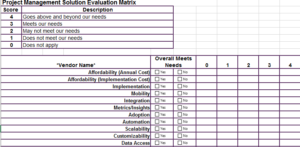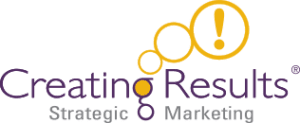“What can you tell me about CRMs?” This is a question we’ve been asked repeatedly by clients as of late. Many are thinking (or rethinking) their strategy when it comes to how they use their CRM and what they need to be successful.
Knowing where to begin the CRM search can be daunting. So many solutions are available. Some are designed for specific industries, while others have been developed based on specific sales principles. So, how do you decide what CRM is best for your organization? Here are three thought starters that will help guide you on your journey.
Step 1: Determine Your CRM Goals
First and foremost, it’s imperative to ensure you have defined the business goals that you’d like your CRM to help you achieve. This alone will allow you to better evaluate your options.
Examples of business goals may be:
• to manage new and existing customers to effectively advance them to sale
• to better understand your pipeline of prospects
• to track opportunities as they move through the pipeline
• to more effectively predict future sales pace/construction needs
A post from BusinessNewsDaily.com breaks down the features you should consider in the following categories:
• Lead management and sales: Do you need a tool that generates leads from website visits, newsletter signups, inbound calls and other inbound lead tools?
• Marketing: Will you need any built-in email marketing or sales forecasting capabilities?
• E-commerce: Some CRMs offer e-commerce functionalities natively, or via a third-party integration.
• Reports: What types of users need a dashboard, what type of information do they need to see? What information will you need to generate in reports, and do you have any importing needs (to bring data into another system)?
• Call center: Is a call center central to your business? If so, you’ll want to understand the CRM’s native and integration options.
• Workflow: How does a lead move through your process internally? You’ll want to be sure the task management system works well with your process, or can be customized to meet your needs.
Step 2: Determine Your Data Needs
CRMs are more than just a sales tool. The data you can derive from your CRM are limitless. According to a recent article from PCMag.com:
“While most look to CRM software as primarily a sales tool, it’s moved beyond that space. Marketing and customer service departments can dramatically improve their offerings and operations with CRM as well by using its data to more effectively segment demographics and record and reuse customer incident information.”
Think about your organization holistically when determining what solution would work best for you. When you use your CRM properly, you can do so much more than just manage appointments.
Relevancy drives action. The more you know about your prospects the more you can send them specific messaging that drives them to the  desired action (a sale). That data can also help you determine geographic areas to concentrate marketing efforts, help your finance team project census goals and trends and more. But remember, garbage in garbage out, so be sure to use this transition as an opportunity to not only clean up the database you have, but also ensure that going forward you’re capturing as much discovery and data as possible.
desired action (a sale). That data can also help you determine geographic areas to concentrate marketing efforts, help your finance team project census goals and trends and more. But remember, garbage in garbage out, so be sure to use this transition as an opportunity to not only clean up the database you have, but also ensure that going forward you’re capturing as much discovery and data as possible.
Step 3: Create an Evaluation Tool
Preparation is key when considering a new CRM. And while you may be dazzled by the glitz and whiz-bang, don’t let the glare cause you to misstep.
HubSpot shared common pitfalls people experience when searching for a CRM:
1. Employee unwillingness or inability to use the CRM.
2. Not defining WHY you need a CRM and how it will be used.
3. Overcomplicating  business goals.
business goals.
4. Choosing an incompatible system, or not allotting proper time and attention to customizations needed or transition and setup required.
To help avoid these pitfalls, putting together a scoring tool can help you evaluate each solution on a level playing field that’s aligned with your business needs and goals.
We Can Help!
With so many CRM options available you need a partner who can help you translate options to what matters most to your business. We’d love to have a conversation with you and help you take the first steps to CRM success. Email us today.


